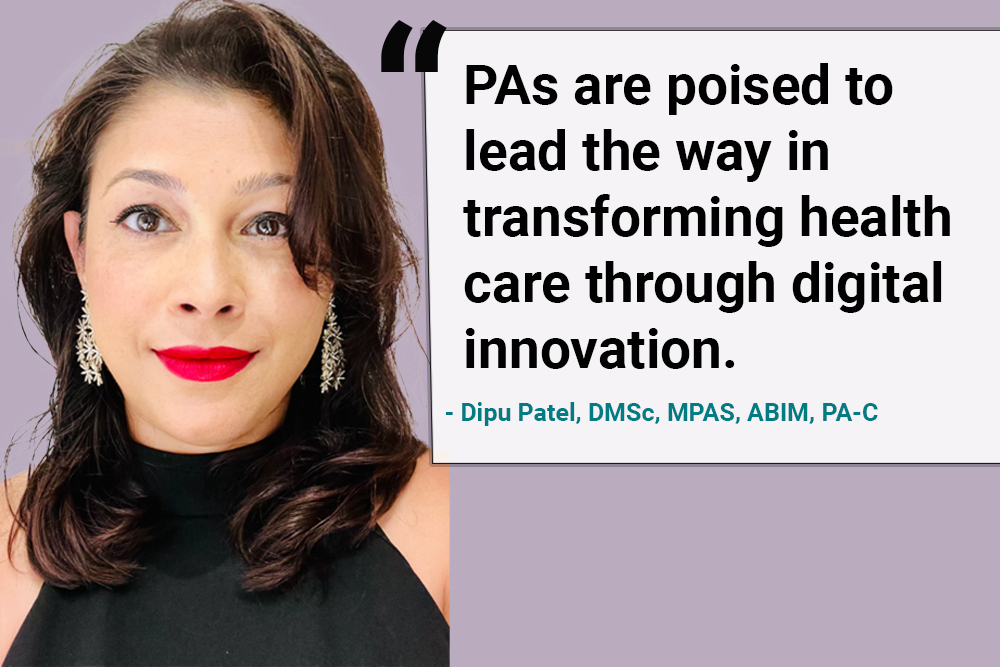PAs at Forefront of Evolving Health Care Innovation

Depending on their specialty and organization, most PAs are uniquely positioned at the forefront of health care innovation, equipped to harness and leverage artificial intelligence (AI), as well as contribute to the realm of genomics.
According to Dipu Patel, DMSc, MPAS, ABAIM, PA-C, an expert in technology and digital health, PAs can leverage AI and advanced diagnostic tools to enhance disease prevention, patient connectivity and overall health.
“In the near future, PAs will be able to use AI and other advanced diagnostic tools to diagnose conditions quickly and accurately, allowing for timely interventions,” said Patel. “These AI tools can process vast amounts of data in real-time, providing PAs with insights that might be challenging to ascertain through traditional means.”
PAs are crucial players in driving innovation, Patel said, and have a unique vantage point that allows them to identify areas where technology can improve patient care because PAs often serve as a bridge between patients and specialists, or vice versa.
Just as digital platforms streamline preventative measures such as vaccinations and hypertension screening, the real-time processing capabilities of AI tools will allow PAs to make timely interventions to deliver more effective treatment plans, she said. This enhanced connectivity could foster improved disease prevention, monitoring of patient progress and provide reminders to ensure compliance.
Unlocking the Potential of Genomics
In the field of genomics, personalized medicine holds immense potential. Patel believes PAs are poised to play a key role in its implementation.
“PAs will be able to offer tailored treatments, monitor potential genetic conditions and provide guidance on preventive measures,” Patel said.
Additionally, PAs can collaborate with researchers, providing valuable clinical insights that can propel the development of new genomic therapies.
“I would encourage PA programs and organizations to expand on their education in this realm, as there is likely to be a shift in personalized and precision care in the next 10 years,” Patel said.
Patel encourages PAs to contribute to health care innovation by:
Participating in interdisciplinary research teams: Sharing their clinical expertise to guide the development of innovative technologies.
Collaborating with tech developers: Providing valuable feedback and ensuring that new technologies are user-friendly and meet the needs of clinicians.
Engaging in continuous education: Staying abreast of the latest advancements and incorporating them into their practice.
Advocating for the ethical use of technology: Ensuring that these innovations are utilized responsibly and equitably benefit all patients.
“PAs are poised to lead the way in transforming health care through digital innovation,” Patel said. “This will ensure innovations are clinically sound, patient-centered and ethically grounded.”
Dipu Patel, DMSc, MPAS, ABAIM, PA-C, is a Board Certified PA, Vice Chair for Innovation and professor at the University of Pittsburgh, Penn. She serves as President-elect for the Physician Assistant Education Association and earned advanced certification by the American Board of Artificial Intelligence in Medicine. She has more than 23 years of clinical, operational and leadership experience.
